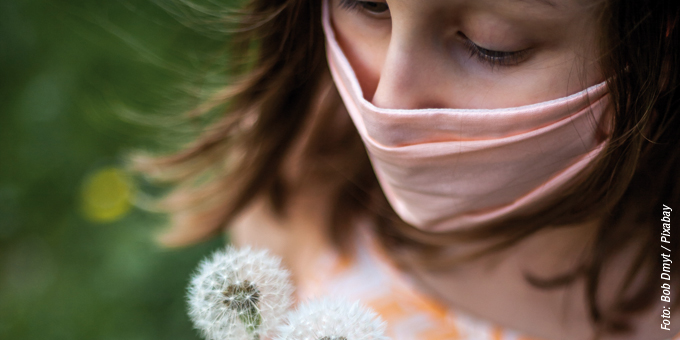I want to receive new articles by email
Reflections on Covid-19
By Jerry Brownstein
The Covid-19 virus came upon us like a slow moving tsunami. In January 2020 we started to hear news of a serious virus in the Chinese city of Wuhan. We saw it coming in the distance but there was little fear. Over the years we had seen SARS, MERS, Bird Flu and other supposedly dreaded pandemics pass us by with no real effects, so this seemed to be a similar situation. But by mid February this tsunami was starting to look much more dangerous as step by step Italy was locked down. In early March the wave was clearly visible, but most of us still felt that it would only be a minor event... and then suddenly it hit us. With almost no warning we were told that we had to stay in our homes until further notice. The tsunami had washed away our cherished freedom of movement, and we had all become reluctant characters in a strange disaster movie.
There are many questions surrounding this situation; some have been answered while others remain open to speculation.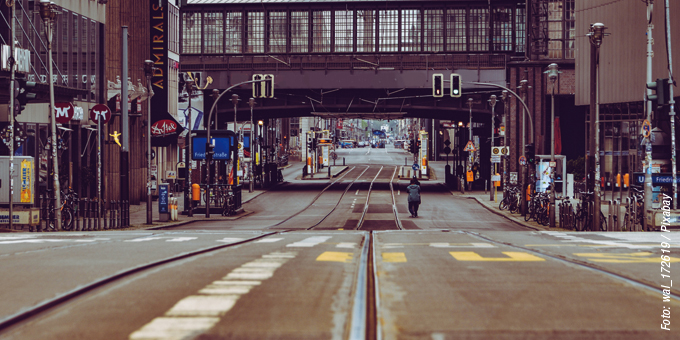
“We had all become characters
in a strange disaster movie”
Where did it come from:
The virus started in the city of Wuhan, China, but the details of how it originated and spread are not clear. The Chinese government says that it arose naturally from bats in the wild, and was passed on to humans at the Wuhan seafood market. However, there is significant evidence that this may not be true. There is a large biological virology laboratory in Wuhan that experiments with combinations of viruses. For some years they had been working to manipulate animal viruses to make them able to infect humans (it is called ‘gain of function’). That research was ostensibly done in order to develop ways to combat this type of virus.
There is speculation that this lab created Covid-19 by modifying a bat virus to make it infectious to humans. This man-made virus then accidentally infected someone in the lab, and that was the beginning of the pandemic. Some scientists dispute this saying that the virus does not look man-made... but others say that it very well could be.
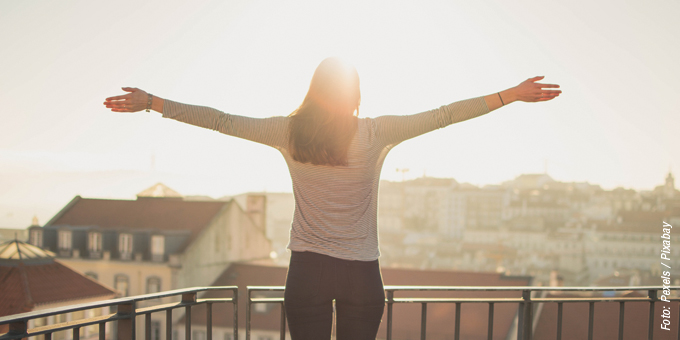 Our Response to the Virus:
Our Response to the Virus:The governments here in Spain and elsewhere faced a very difficult situation with no clear historical path to follow. Most of them listened to the advice of scientists and opted for some form of lockdown, even though there was no proven evidence that this was the best solution. So in a very real sense we are all part of a grand experiment to see if this is the correct way to handle such a pandemic. It is fair to say that our government did as well as could be expected under these uniquely trying circumstances. It is also fair to say that some of the actions taken were not completely logical.
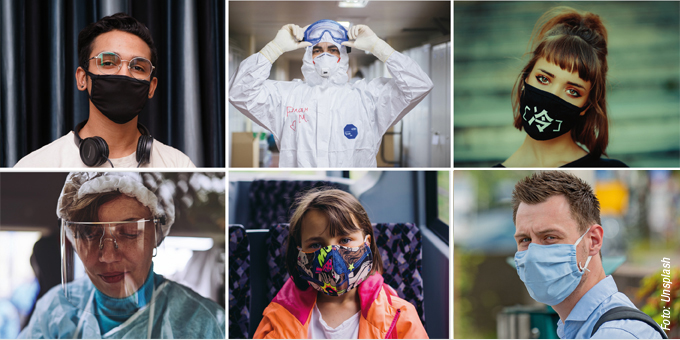
The original lockdown was “one size fits all”.
Whether you lived in a crowded area of Madrid where the virus had spread rapidly, or in the middle of the campo on an island with almost no infection, we were all subject to the same very strict rules. Here on Ibiza it made no sense to do things like sending drones to track and arrest a single person walking their dog on an empty beach. Again, it is important to remember that the government was under great stress and working hard to understand an unprecedented situation. They followed the “Precautionary Principal” to be as safe as possible,
but the lack of logic in some of the rules was frustrating. As the virus came under control the rules were gradually modified, and the government did the right thing by first easing the restrictions on communities like Ibiza which had only minimal risk.
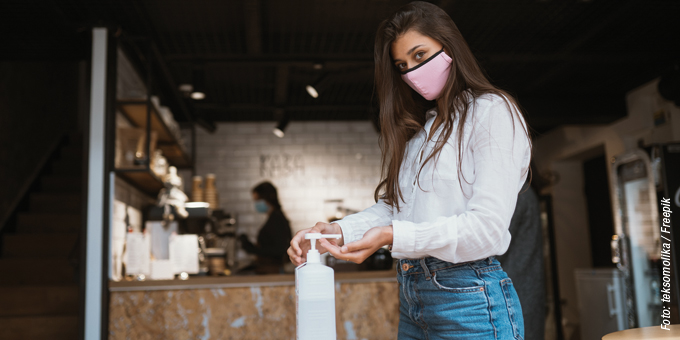
“Was lockdown a proportional response
to the level of mortal danger?”
What we have learned:
This is a virus that spreads more easily than others, so the danger of infection is high. Older people in nursing homes and others who have existing health problems are at great risk for serious illness or death. However, most people with strong immune systems only have minor symptoms when infected. A lesson for the future is to immediately protect those who are truly at risk, but perhaps a drastic lockdown, with dire economic and psychological consequences, is not necessary for the entire population. Healthy people could be allowed to live their lives, but with sensible precautions – wearing a mask when in a crowded indoor area, social distancing, keeping hands clean, and self quarantine if infected.
Sweden did not lockdown, but trusted their population to follow safety guidelines, and their incidences of infection and mortality are very similar to those in the locked down countries of Europe. Another lesson is to be better prepared with personal protection equipment and accurate testing. We do not know how many people have actually had this disease, because most healthy people with only minor symptoms were never tested. The actual number of cases could be as much as ten times higher than what has been reported, which also means that the mortality rate among those who have been infected is much lower. Help is on the way for better testing as several types of rapid tests are being developed including ones that you can do in your own home.
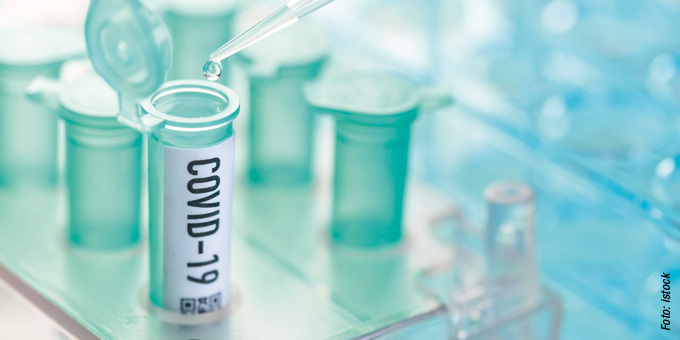 What does the future hold?
What does the future hold?After three months of lockdown and restrictions, Ibiza was virtually Covid-free by the middle of June, but there was pressure to allow some tourism to bring relief to the economy. So a decision had to be made whether to allow tourists to come here, and if so by what procedure. Health experts said that the only safe way to allow people to come from the outside was to test them before they arrived. The alternative was to allow people to come without pre-testing. The government chose the second option, and of course we immediately started to see new Covid cases.
Had they decided to have pre-testing we would still have an island that was free from the virus. This would have been an excellent way to attract more tourists: “Come to Ibiza where you will be safe from Covid-19!” It would not be mass tourism, but it would be safe tourism. Instead we brought in new infections which led to making masks obligatory - even when walking down the street. So our advertisement became: “Come to Ibiza where you will have to wear a mask at all times!”
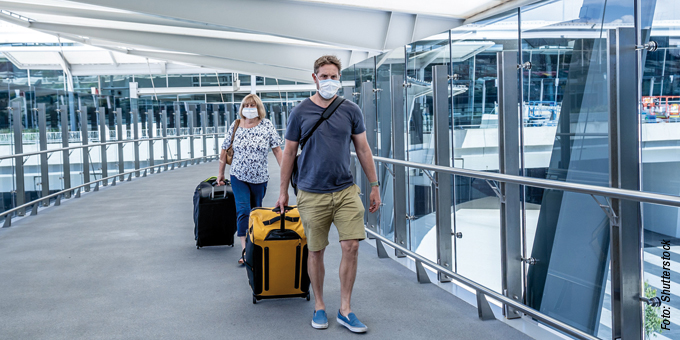
Clearly it is a challenge to balance the competing needs for health, personal freedom and the economy. The solution is to get the virus under control and one way would be with an effective vaccine, but that is not as simple as it sounds. Scientists around the world are working on a vaccine, but it is not always possible to create one that is both safe and effective.
Another alternative is to find ways to treat the virus which lessen the symptoms and allow people to recover quickly. This is already evolving as doctors learn better ways of handling the loss of oxygen without resorting to the drastic use of ventilators. In addition, many new and existing drugs are being tested to see if they are helpful against Covid-19. Our own Rosario Hospital used ozone therapy very effectively to combat the virus, and they have shared that knowledge with other progressive medical centres around the world. Perhaps the most important thing we can do as individuals is to keep this situation in perspective. One way or another we will find a solution, because we cannot let this “new normal” become our new reality.
